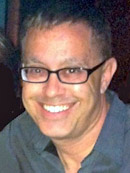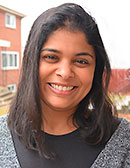
THE BRIDGE TO COLLEGE
What A Personal Statement Is NOT!
By Robert A.G. LeVine

University applications almost always ask for a “Personal Statement” (or words to that effect). They are not all the same. Today, we shall discuss the Personal Statement utilized by most U.S. colleges. This is a different essay than what is required by universities outside of the United States, and it is also different from what is required by universities outside the U.S.
Unfortunately, it seems that most people think “one size fits all.” That’s a big mistake!
The starting point for understanding the undergraduate Personal Statement is to understand why colleges even request this essay. Some people think it’s a writing sample. Nope! They already have your grades in English class to evaluate your ability to write. Besides, most everyone has help in editing this essay, whether it’s an English teacher, a high school counselor, a parent, or a hired college consultant. Yes, avoid being sloppy or offensive, but the message should not be “I can write.” It should be “Here is what I want you to know about me.”
But what do they want to know?
Let’s start with what they do not want to know. The Personal Statement is not an expanded resume. It is not meant to prove your academic abilities, nor to expand upon your extracurricular activities. Remember, the application form was designed to give them that information already. They ask for your courses. They ask for your grades. They ask for your SAT scores. They ask for things you do outside the classroom. They create a format to allow for a complete and efficient evaluation by admissions professionals. If they wanted to know more about these things, they will ask for more.
What they want is for you to write an essay on “any topic of your choice.” However, what they really want to know is the answer to “Who are you?” They are trying to predict applicants in their environments, not just their classrooms.
Colleges teach in different ways. Colleges create different communities. Colleges have different cultures. They want to know how you might contribute – or not – in their world.
In other words, does your personality fit their college?
Yes, I said “personality.” Our top universities create environments where students teach each other outside the classroom by sharing their diverse experiences, philosophies and ideas. They need people who will share and who are likeable.
For that reason, our top colleges evaluate each applicant’s personality. Quite literally, there are sections on their grading sheets for this purpose. Harvard and Princeton both call it “Personal Qualities.” Dartmouth calls it “Character.” Swarthmore calls it “Personal Characteristics.” Penn and Vanderbilt both use the terms “Qualities” and “Characteristics.” You get the idea ….
None of that information is available by reading about academics, test scores or extracurriculars. It is found in Personal Statements, recommendation letters and interviews. In chronological order, the Personal Statement is the first place an admissions office will see your “id,” your chi, your soul, your personality.
So, please do not write about a topic that is not central to you. Watch mechanisms, while interesting, do not tell a college more about you. And writing essays that prove your worth? They have already seen your results, but until the Personal Statement, they have not yet seen you.
Therefore, please do not write expanded resumes. Write about who you are, how you became that person, and how your characteristics developed over time. Let them predict your future in their college. Show them your trajectory. It’s not about what you have done, but rather how you became the kind of person who may (or may not) work well in their environment. If you do feel the need to talk about one of your activities, write about your method, not your results.
Again, if you are applying to the U.K. (or schools in most other countries), what they want is different. If you are applying to graduate schools, what they want is different. For undergraduate U.S. colleges, write about your person, not your achievements.
Still, many of you are too pre-conditioned and will still want to prove yourself through this essay. Please resist this urge; that is not the purpose of the Personal Statement. If they want to know more about your academics or your extracurricular activities, they will prompt you for this information in “supplemental” essays.
If they can’t understand you, they won’t pick you. Show you!
Robert LeVine is the founder and CEO of University Consultants of America, an independent educational consultancy assisting students around the world with applications to colleges, universities and graduate schools. For more information, call University Consultants of America, Inc. at 1-800-465-5890 or visit www.universitycoa.com
FAMILY MATTERS
Communities and Milestones
By Anu Verma Panchal

A few months ago, I had the good fortune to stand by my parents’ side as they celebrated a significant milestone, their golden anniversary. One of my favorite parts of the event was that in addition to uncles, aunts and cousins, we had with us their closest friends, the extended “framily” that had helped my parents recreate a sense of home and family when they were thousands of miles away from the place of their birth.
Circa 1980, with a toddler and 6-year-old in tow, my parents moved to a little town in Zambia called Kabwe. They knew no one and nothing about this new country beyond my dad’s offer letter and one phone call with a relative who had once lived in Africa.
But on their very first evening, there was a knock at the door. It was a young Malayalee couple with two little boys our age. Hearing that a new family from Kerala had arrived, they had stopped by to welcome us. From that one introduction, my parents were immediately absorbed into a group of friends.
The same thing happened every time we moved towns. The news of our impending arrival reached before we did, and we were pulled into existing Malayalee social circles. Our weekends were spent at each other’s houses, uncles in safari suits swilling whiskey, aunties in sarees holding deafening conversations while we ran around and played. As the years passed, my parents grew into the veterans who welcomed new families and organized the elaborate cultural events that gave the community a sense of home away from home.
And all around town – and across the South Asian diaspora – others were doing the same thing. In Tamil, in Bangla, in Hindi, they created communities that served a familial function for each other. Community building seems to be in our genes. Or, as a friend once told me, “We’re like goats ... we can only travel in packs.”
During the college years and in my early 20s, plugging into the local desi community was nowhere close to being a priority; in fact, I reveled in the freedom from it. It was irritating, even, to see the insularity that I imagined permeated those associations. Why move to another country and only hang out with the same people? Why not at least try to assimilate?
It was only when I became a parent that I found myself searching, maybe even yearning, for some small level of connection. I wanted my daughters to learn Bharatanatyam like I had, wanted them to celebrate Hindu holidays and go to the temple occasionally. Does that mean that I want my communities to be restricted by ethnicity, language or religion? Certainly not. I am blessed with close “framily” from many backgrounds, and I enjoy Gasparilla as much as I do Onam and Navaratri.
Yet I am grateful for the generations who came before we did and established everything from the Tampa India Festival to the India Cultural Center so that we now have the option to dip a toe, an ankle or our whole selves in cultural life if we so desired.
A week before my older daughter was due to leave for college, I took her on one of our habitual visits to the Hindu temple here in Tampa. By a happy coincidence, the pujari on duty that day was the same one who had presided on the day that we had taken her on her first temple visit when she was a 6-month-old baby. “You’re the one who carried her to the front of the room when she was born, and now she’s starting college,” I told him. He beamed. “Look at that!” he marveled.
Look at that indeed. That kind of continuity doesn’t just happen. It’s the result of hard work from a lot of people who came before us, many of whom we’ll never even know. The roots they put down gave us the luxury to pick and choose how much we want to hold on to, because some variation of it has been preserved here for us.